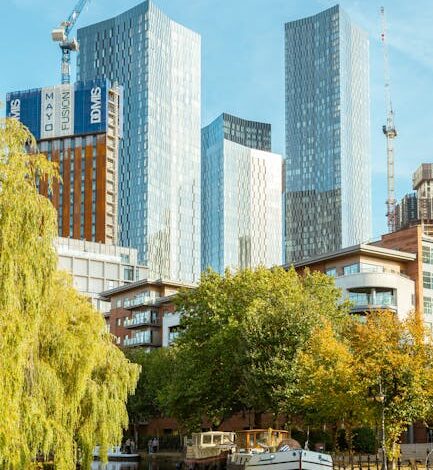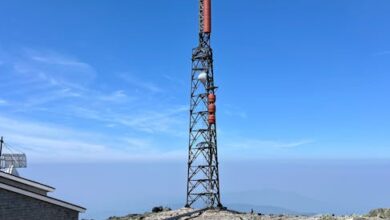The High-Stakes Race for a Cooler Planet: Caution Amidst Innovation

What do a multi-million dollar venture capital round for climate intervention and a beloved animated sitcom have in common? On the surface, absolutely nothing. One deals with the gravest existential threat facing humanity, the other with comedic takes on everyday life. Yet, both stories, recently highlighted in MIT Technology Review’s The Download, offer fascinating lenses through which we can peer into our collective future – one through active, high-stakes engineering, the other through the uncanny art of cultural foresight. It’s a curious juxtaposition that really makes you think about how we, as a species, perceive, react to, and try to shape what’s coming next.
The High-Stakes Race for a Cooler Planet: Caution Amidst Innovation
The first story is enough to give anyone pause. An American-Israeli company called Stardust, claiming a proprietary technology to cool the planet, just landed a staggering $60 million in venture capital. This isn’t just another tech startup; this is a company aiming to deploy a solar geoengineering system by the start of the next decade. Think about that for a moment: private enterprise taking on the monumental task of actively altering Earth’s climate.
While the urgency of climate change is undeniable, the implications of this for-profit race are profound. Experts like David Keith from the University of Chicago and Daniele Visioni from Cornell University, who’ve dedicated decades to studying solar geoengineering, are raising serious alarms. Their concerns aren’t just academic; they question the very fabric of science and public trust when private companies step into such a globally impactful arena.
Beyond the ethical quandaries, there’s the issue of technical claims. Keith and Visioni explicitly dispute some of the assertions made by these companies about their offerings. When we’re talking about interventions that could literally change the weather patterns for billions, relying solely on privately funded, potentially unverified claims feels incredibly risky. It highlights a tension between the desperate need for solutions and the critical requirement for rigorous scientific oversight and transparent, ethical governance.
It makes you wonder: in our rush to mitigate climate disaster, are we inadvertently creating new, unforeseen global challenges? The notion of a company, driven by profit, taking on the role of global climate engineer, brings up a host of questions about accountability, equity, and potential unintended consequences for the entire planet.
From Springfield to the Future: The Simpsons’ Uncanny Prophecies
Shifting gears entirely, let’s talk about Springfield’s most famous family. For years, the internet has been buzzing with listicles cataloging the astonishing number of times The Simpsons has supposedly predicted the future. Anywhere from 17 to a mind-boggling 55 times, according to some counts. From Donald Trump’s presidency 17 years before it happened, to the “Osaka flu” in a 1993 episode that eerily paralleled the coronavirus pandemic, and even the US Olympic curling team beating Sweden eight years in advance – it’s almost spooky.
Al Jean, the show’s longest-serving showrunner, has offered his reflections on these apparent prophecies. While it’s easy to get caught up in the idea of some secret crystal ball in the writers’ room, his perspective offers a more grounded view. Perhaps it’s not so much precognition as it is a testament to the show’s incredible longevity and its sharp, often prescient, observations of societal trends, political absurdities, and technological shifts.
Think about it: a show running for over three decades, with hundreds of episodes, is bound to touch on many aspects of life. When you combine deep comedic insight with the sheer volume of content, it’s inevitable that some fictional scenarios will eventually align with real-world events. It’s less about predicting the future and more about reflecting the continuous, cyclical nature of human behavior and societal development. Still, the precise hits, like the Trump presidency, remain genuinely unsettling in their accuracy.
Navigating Tomorrow: Trust, Technology, and Our Human Quest
So, what do these two disparate narratives – a serious look at future technology and a whimsical take on pop culture – tell us about the future? They speak to a fundamental human desire: to understand and, if possible, control what lies ahead. One illustrates a proactive, albeit controversial, attempt to engineer a safer future. The other demonstrates our innate tendency to find patterns, narratives, and even prophecies in the chaos of change, seeking comfort or meaning in the seemingly random.
This quest for certainty is also reflected in other fascinating stories from The Download. We see therapists secretly using ChatGPT, triggering clients and eroding trust – a stark reminder that even tools designed to assist can profoundly impact human connection and ethics. Scientific journals are being swamped with AI-written letters, forcing researchers to question what they can believe. The digital dollar, once a hot topic, has become political “red meat,” showcasing our societal anxieties about surveillance and control.
Whether it’s the potential for a technological fix to climate crisis, the uncanny foresight of a cartoon, or the ethical dilemmas posed by rapidly evolving AI, the underlying theme is a world in flux. We are collectively grappling with immense technological power, often outstripping our ethical frameworks and regulatory capabilities. Trust, in an increasingly digital and automated world, is becoming a more precious and fragile commodity than ever before.
Both stories, in their own ways, underscore the incredible pace of change and the complex choices we face. They urge us to be critically engaged, to question claims, and to demand transparency, whether it’s from private companies promising to cool the Earth or from the algorithms shaping our professional and personal lives. The future isn’t just something that happens to us; it’s something we are constantly shaping, both intentionally and unintentionally, with every innovation, every debate, and every story we tell ourselves.
Looking Ahead: Engagement and Critical Thought
As we hurtle into an increasingly complex future, the insights from The Download serve as vital touchstones. The race for solar geoengineering highlights the urgent need for global dialogue and robust ethical guidelines before private interests potentially commandeer our planet’s destiny. Meanwhile, The Simpsons’ playful prophecies remind us to look closer at the world around us, to critically analyze patterns, and to understand that our cultural output often mirrors our deepest hopes and fears. Both paths, though vastly different, converge on a single, crucial point: the future demands our active engagement, critical thought, and a commitment to shared understanding. It’s not enough to simply witness the future unfold; we must participate in its making, thoughtfully and responsibly.





